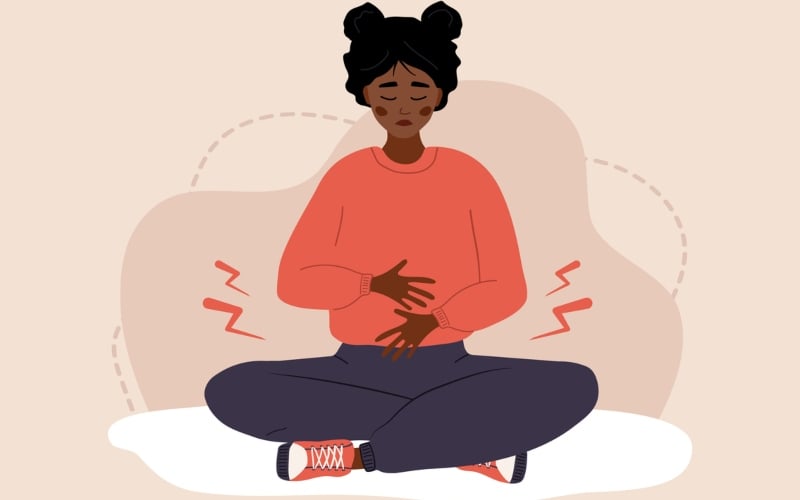Rather than beating yourself up for what you are not doing, appreciate and celebrate the things you are doing.
— Iyanla Vanzant
Throughout much of my life, I was my own worst critic. Quick to jump on even the littlest mistake, I could verbally tear my own head off better than anyone else. Yet it was easy for me to show compassion for others in the same set of circumstances. I could always cut them a whole lot more slack than I would ever consider doing for myself.
I know I’m not alone in this; I’ve heard plenty of people say the same about themselves. It seems to be a common malady among humans.
In my case, I had been brought up to believe the worst about myself. With verbal abuse and constant criticism, I thought all of those harsh words were simply the truth. I thought I deserved every one of them. Nothing I did was ever good enough.
I believed I was worthless and that every other person on the planet was better than I was in all respects.
Therefore, it was easy for me to support them and be kind to them. To me, they were decent, worthwhile people who were doing their best. Their mistakes were innocent or understandable.
Mine were further evidence that I was inherently defective.
The Truth Emerges
Fast forward many years and a lot of therapy for the abuse and trauma of my childhood — and its ripple effects in my adult life…My self-esteem and sense of self-worth had dramatically improved. I had learned to give myself the same consideration as others. I recognised that I had been living with set of double standards: One set of self-destructive rules for myself, and a set of oh-so-much-nicer rules for everyone else.
It had taken a few decades but finally, I had come to understand that my mother’s decidedly terrible statements about me were untrue. They were her opinions, her beliefs. And beliefs are not facts. Beliefs can change. Opinions can change. But facts are provable and consistent. They are the truth. Two plus two will always equal four, no matter how you try to come up with a different answer.
I worked hard to override those old beliefs. I strove to prove to myself that I was not the person my mother thought I was, and to become the person I wanted to be.
Still, that inner critic would rear its ugly head at times. Convinced it was remnants of old beliefs and responses, I managed to berate myself (albeit mildly) for continuing to berate myself (she says, shaking her head and rolling her eyes at how ridiculous that is).
As it turns out, this is not necessarily true. Sure, that old training might still be lurking and attempting a little self-sabotage here and there. Or for some it could be a lot — especially if you were abused or belittled in your early years. Enduring a lot of criticism, neglect or other damaging treatment can trash your self-confidence and leave scars that affect the way you see yourself for years to come.
It is easy to understand why that sort of treatment could make people be hard on themselves.
But even those who were raised in relatively healthy environments do it, too. I couldn’t understand why — until I found myself in the social work, counselling, self-help industry and discovered something else.
Our ability to beat ourselves up is serving a purpose.
And when you learn what it is, it will make perfect sense.
How the Inner Critic Tries To Help
That inner critic is actually attempting to ensure our safety and our success in life. It’s a part of the fight-flight-freeze response and it interprets a mistake as something that is a danger to us.
Here’s why a mistake is seen as a threat and why it triggers the inner critic:
- Because we need a community to survive and thrive, that inner critic is concerned that a mistake will prevent us from being loved or accepted.
- It might even mean not being able to provide for ourselves — especially as we are better able to do this with a community.
- The inner critic believes that being harsh is the best way for us to learn so we don’t make the same mistake.
- It pushes us to ignore painful situations. If we were to immerse ourselves in sadness and despair, we would not be very productive or functional. It believes that this could threaten our survival. So we tell ourselves we’re being stupid or foolish for being upset, feeling hurt, or for things not turning out as we had hoped. We suck it up, stuff our feelings and keep going.
However, negative comments and harsh criticisms do nothing to improve our lives or help us to be happy, successful people. Certainly, there are people who would say that a severe upbringing drove them to a successful life in career or business, but their self-esteem and overall happiness and enjoyment of life might well be suffering.
According to socialwork.career:
“Harsh criticism may motivate in the short term but in the long term, this is discouraging, demotivating and may lead to anxiety and depression.”
A Better Way
Our competitive culture does nothing to alleviate this problem. For many, we become busier, less available for anything enjoyable, and more stressed every year. It’s impossible to keep up that sort of pace for the long-term without suffering consequences physically, mentally, and/or emotionally.
The first step toward breaking this unhealthy cycle is practicing the art of self-compassion. According to Kristin Neff, Ph.D., author of Self-Compassion: The Proven Power of Being Kind to Yourself:
“…self-compassion helps us to see ourselves clearly and make needed changes because we care about ourselves and want to reach our full potential.”
Just as we treat others with compassion and kindness — especially when they’re troubled — we should offer ourselves the same treatment. Dr. Neff’s (and others’) research on the subject of self-compassion “…strongly suggests that people who are more self-compassionate lead healthier, more productive lives than those who are self-critical.”
If you think about it, when life has knocked you down, it’s easier to get up and try again if someone is showing you kindness and encouragement than if you are being criticised and shamed.
“Give yourself a break. Stop beating yourself up! Everyone makes mistakes, has setbacks and failures. You don’t come with a book on how to get it right all the time. You will fail sometimes, not because you planned to, but simply because you’re human. Failure is a part of creating a great life. Stand up to it and handle it with grace. Because, you can.”
— Les Brown
The Takeaway
You’re doing your best. I know you might not always feel that way but it’s true. In any given moment or circumstance, you are doing the best you can with what you’ve got. I’m certain you never wake up in the morning and say, “Hm, today I think I’ll do less than my best.”
It might not be the best you’ve ever done in your life, but it’ll be the best you can do for that day. The truth is that we’re all stumbling through life with good days and not-so-good days. Sometimes life goes our way; other times, not so much. It doesn’t help if we berate ourselves when things go wrong. All that negative thinking and energy will only make us feel worse.
Think about this: Have you ever had a rough time and someone comes along and bashes you for it, making you feel worse? How helpful was that?
And have you ever had a miserable day and someone comes along and offers kindness, urging you to take care of yourself? Definitely a lot more helpful, right?
You can be that person for yourself. You’re doing the best you can, even when you mess up. Even when you don’t finish. Even if it feels like the wheels are coming off.
When there’s too much to do, when there’s too much stress, when you get it wrong…Be gentle with yourself. Treat yourself the way you would treat your best friend. Kindness and compassion have the power to heal deeply.
And when all else fails, remember My Thoughts On Doing Versus Leaving Housework and Other Undesirable Stuff, which I wrote in 1987 (the title is almost longer than the poem):
Do your best and leave the rest,
Tomorrow will soon be today,
And if you’re dead by then instead,
It won’t matter to you anyway.
— ©Liberty Forrest 1987
I do admit to having a rather odd sense of humour.  It’s the one thing that has sustained me through many dark times.
It’s the one thing that has sustained me through many dark times.
—
This post was previously published on medium.com.
***
You may also like these posts on The Good Men Project:
 White Fragility: Talking to White People About Racism
White Fragility: Talking to White People About Racism  Escape the “Act Like a Man” Box
Escape the “Act Like a Man” Box  The Lack of Gentle Platonic Touch in Men’s Lives is a Killer
The Lack of Gentle Platonic Touch in Men’s Lives is a Killer  What We Talk About When We Talk About Men
What We Talk About When We Talk About Men —
Photo credit: Shutterstock.com
The post This Is Why You Should Stop Beating Yourself up Immediately appeared first on The Good Men Project.
Original Article










